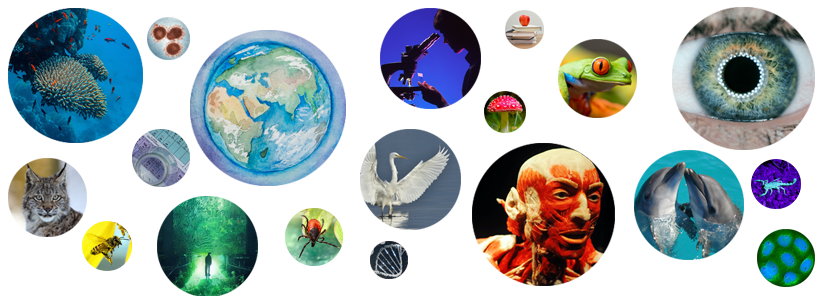Bachelor of Science Undergraduate Programme
Undergraduate study in Biology lasts for 3 years, i.e. 6 semesters. Applicants for the admission to the Undergraduate study program in Biology should hold a 4-year secondary school diploma and successfully pass the State Matura Exam.
Modern society is knowledge-based, and biology, i.e. the science of life plays a significant role in it. Biodiversity, recombinant DNA technology and nature protection are biological disciplines, without the knowledge of which the modern society would not be able to advance. Therefore, it is easy to recognize the value of knowledge gained within a study of natural sciences.
With much focus on globalization, we often forget about natural processes, yet it is of basic necessity to provide education on the importance and functioning of life. Teaching plays an important role in the process of education as it should provide younger generations with knowledge that will explain and protect life.
Whatever they professional interests may be (educational, scientific or professional activities), biologists are in high demand on the global labor market. In addition to educational and scientific institutions, there is an increasing number of private companies dealing with research or production for which they need the expertise of biologists.
Contents of obligatory and elective courses are devised according to the latest scientific findings, thus providing our students with knowledge and skills which will make them competitive on the global labor market.
We are offering an undergraduate study program with a major in biology that is comparable to similar study programs delivered across the European Union (e.g. by the Universities in Wageningen, Heidelberg, Pecs, etc.). The study program structure is agreed upon with other Croatian biology professionals. This study program also allows for vertical and horizontal student mobility.

The University Department of Biology is the successor of the Department of Biology, where professors of biology and chemistry have been trained continuously since 1977, when the study of biology and chemistry was established at the then Faculty of Education. Based on the Report of the Commission for the Evaluation of Higher Education Institutions in the Republic of Croatia in the field of natural sciences, field of biology (item 11 of the Report), we deliver the Undergraduate University Study Program of Biology, and the graduate study programs for the academic degree of Master of Science in Biology, Master of Education in Biology, and Master of Education in Biology and Chemistry.
This study program facilitates horizontal and vertical mobility of students, since it is structured according to the principle of 70% of obligatory courses and 30% of elective courses. It is similar to some study programs of “major + minor” study structure, and it is also compatible with similar study programs delivered in the Republic of Croatia. Elective courses are designed as a supplementation to the obligatory part of the study program, so that students obtain appropriate scope of knowledge required for continuation of higher education within graduate study level, either at Josip Juraj Strossmayer University of Osijek or at other universities in the Republic of Croatia or abroad.
Following the recommendations of the Committee for external evaluation of higher education institutions in the Republic of Croatia referring to the area of Natural Sciences and the field of Biology, Josip Juraj Strossmayer University of Osijek fulfilled its plans to establish the University Department of Biology, thus succeeding in assuring significantly better conditions for working, teaching and performing of scientific research. Therefore, the University Department of Biology disposes of all resources for delivery of a modern study and research into biological sciences. Furthermore, the University Department of Biology is continuously investing considerable financial means and material resources into equipping of laboratories and practice halls, and such positive trend of development is expected also in the future.
